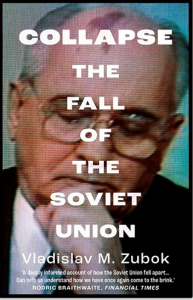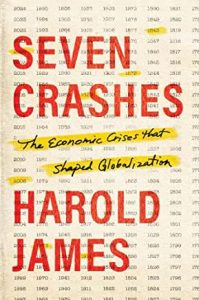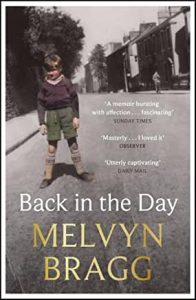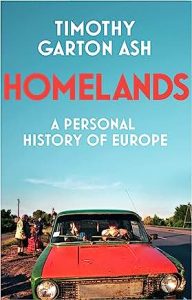Collapse: The Fall of the Soviet Union by Vladislav Zubok was unexpectedly gripping. It’s a large tome, and I can’t remember how it came to be in my pile. But perhaps it’s because the events collectively described as the collapse of Communism marked history as part of my own life that I found the detailed descriptions here of Soviet politics over the years from the arrival of Garbachev and the collapse of the USSR so compelling. In the late 1980s I was working for DRI Europe where my job included trying to understand perestroika and the Soviet economic reforms to explain to clients. We were on holiday in remote Herefordshire watching the fall of the Berlin Wall on a small black and white TV, whose grainy footage felt somehow appropriate for a world historical event. Then came the Czechoslovak Velvet Revolution and the not-at-all-velvet overthrow of the Ceaucescus in Romania over the Christmas holiday. German re-unfication. And of course the collapse of the USSR and western ‘victory’ in the Cold War. If only we’d realised then that the West was a construct of the same system, except that its collapse on our side of the Iron Curtain would be a slower business.
Anyway, aside from the fascinating detail, the message I took away from Collapse was the perennial: it’s the economy, stupid. If there’s high inflation and people’s living standards are falling because of food shortages and other problems, you will have zero political room for manoeuvre and will open the way to political snake-oil peddlers to offer “easy” solutions. Oh.






